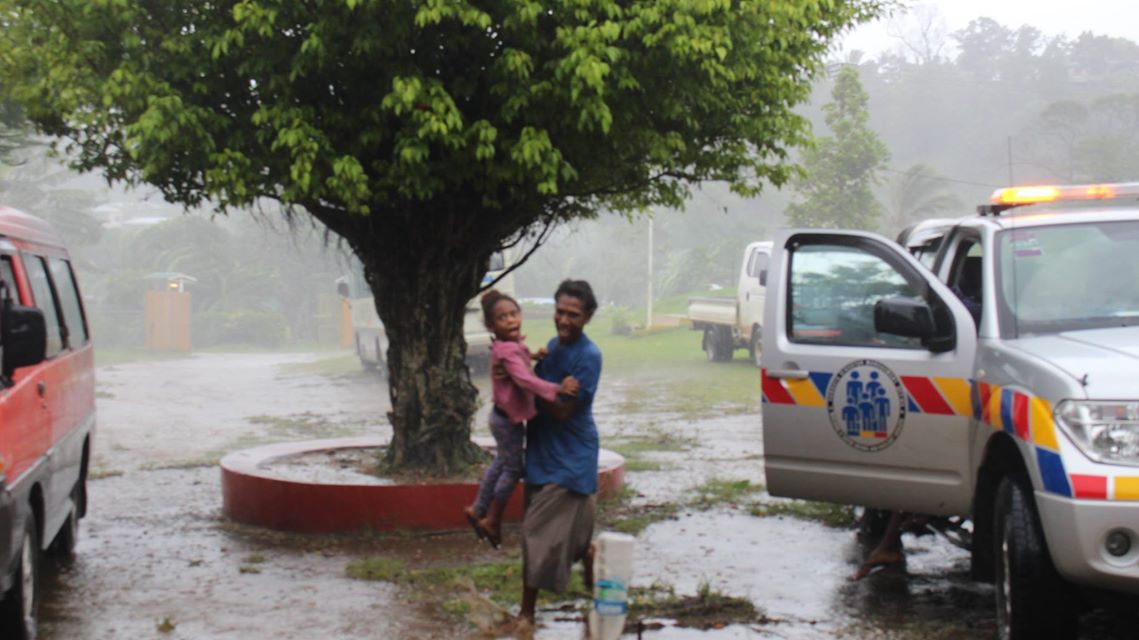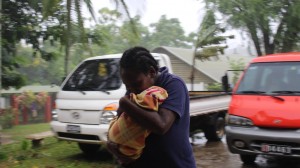Humanitarian, Advocacy and Campaign16 MAR 2015
Sendai Update: Will the World’s New Disaster Risk Reduction Deal Be an Empty Promise?

Scott Paul
Scott Paul is a Senior Humanitarian Policy Advisor at Oxfam America.
By Scott T. Paul, Senior Humanitarian Advisor, Oxfam America
What do you call a plan with no agreement on how to finance it?
In the US government, the nasty epithet for such a thing is an ‘unfunded mandate’. In other spheres, there are simpler descriptions: incomplete, incoherent, and irresponsible.
Yet that’s precisely the sort of outcome that’s shaping up in the final days of negotiations* for the post-2015 framework for disaster risk reduction, in Sendai, Japan. This is extremely worrying given that this new framework is set to become the main international agreement to reduce vulnerability to the growing threat of disasters worldwide.
Only a couple days ago Tropical Cyclone Pam tore through the small island nation of Vanuatu in one of the most devastating disasters in the history of the Pacific region. At the time of writing, the world is still awaiting an accurate death toll, and fearing the worst.
But despite an emotional personal plea from the President of Vanuatu and exhortations from UN Secretary-General Ban Ki-Moon, wealthy countries are refusing to commit more money for disaster risk reduction. Never mind that climate change, for which those same wealthy countries bear the greater historical responsibility, is partly to blame for the increasing damage that poor people in poor countries are suffering because of disasters.
The bottom line is that governments came together in Sendai to put people at the center of disaster prevention efforts. They found common ground in their desire to ensure that the impact of natural hazards in the next fifteen years is less deadly and damaging than those in the last ten. And they all understood that much of this effort must happen in developing countries, where the damage is worse and the financial and technical capacity to address it is in shortest supply.
Put simply, developing countries do not have the money to pay for this improvement by themselves. Of course, low and middle income countries should continue to invest more of their own resources in building resilience. Yet, by refusing to commit additional support, wealthy countries have essentially said: ‘you’re on your own’. They’re seriously endangering the possibility of real progress.
Oxfam and other organisations hoped that the Sendai framework would set numerical targets (for example, reducing economic losses from disasters and increasing financial support from developed countries each by thirty per cent by 2030). Negotiators here have instead gravitated towards more vague language that targets ‘substantial’ improvement on a range of measures. So it follows – to most observers, at least – that for developing countries to make substantial improvements, they’re going to need substantially more resources.
Let’s be clear: the people of Vanuatu are not struggling to cope with Tropical Cyclone Pam because they lack initiative or political commitment to disaster risk reduction. In fact, they have taken thoughtful steps over the years to prepare for events like this, and we’ll learn in the coming days of the lives and livelihoods those steps have saved. They will commit more of their own resources to reducing disaster risk in the future too. But in the face of increasingly severe weather events, more must be done to build the resilience of vulnerable communities. In Sendai, governments have proclaimed that in the future, more will be done. But with no commitments to resource these efforts, the ambition expressed here is likely to go largely unmet – and the world’s poorest and most vulnerable people will pay the highest price for it.
* ‘Negotiations’ refer to those at the Third UN World Conference on Disaster Risk Reduction (DRR) in Sendai, Japan. The conference is the world’s biggest event in over a decade aimed at tackling the devastating impacts of disasters on lives, livelihoods and economies.


